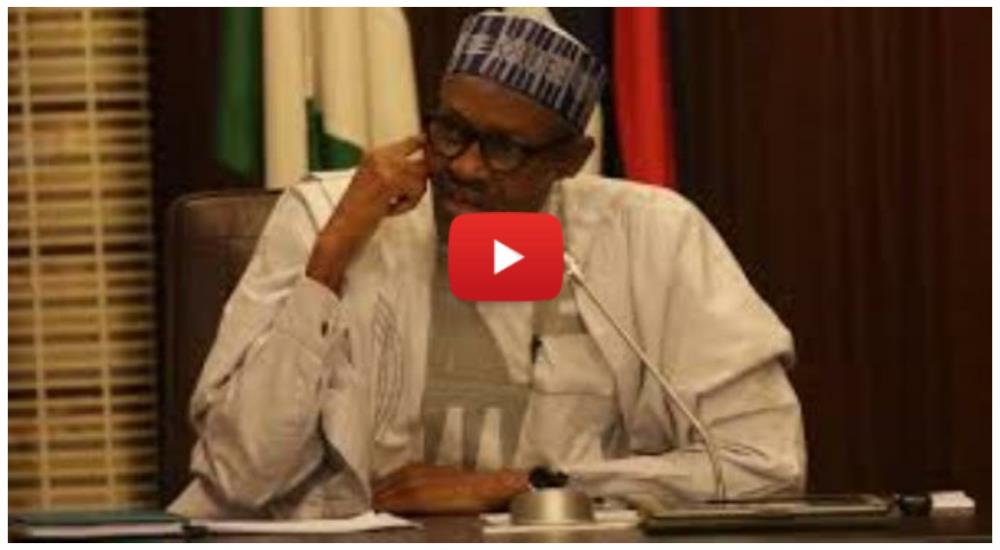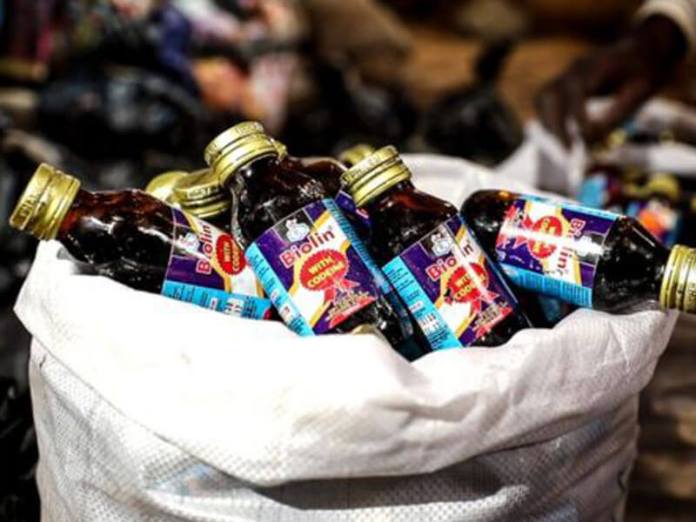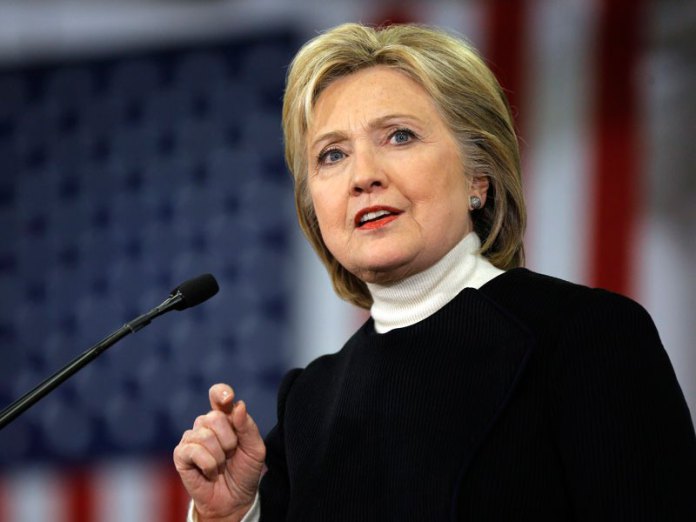The LA Dodgers won the World Series but for Latino fans, it’s complicated
For Natalia Molina, a lifelong fan of the Los Angeles Dodgers and a third-generation Mexican American, the crowning moment of baseball’s World Series didn’t come in last Saturday’s nail-biting finale, when her team performed one death-defying escape act after another before prevailing in extra innings over the Toronto Blue Jays.
It came a game earlier, when two of the team’s second-tier players, Kike Hernández, who is from Puerto Rico, and Miguel Rojas, from Venezuela, pulled off a thrilling, game-winning sequence that simultaneously upended the many negative stereotypes Donald Trump has been touting about Latinos since he first ran for president a decade ago.
The play itself was breathtaking: Hernández charged in from left field to snag a ball he initially lost in the stadium lights, then fired it to second base to chalk up another, game-winning out on the same play. Rojas, at second base, received the ball just a split second before a Blue Jays runner barreled into him, knocking him backwards.
This wasn’t just a great sporting moment, perhaps the decisive shift in momentum in the Dodgers’ favor after looking for much of the series like the weaker team. For Molina it was exhilarating, politically and culturally, a badly needed morale boost for Latinos, and for Los Angeles, after months of immigration raids, troops patrolling the streets, and a steady drumbeat of negativity from the White House.
“Kike and Miggy put forth this counter-narrative,” said Molina, a professor of American studies and ethnicity at the University of Southern California. “The world saw Latinos showing an infectious pride and joy in what they do, being leaders on the team, having a different kind of masculinity. They’re bombastic, they’re yelling, they’re taking off their shirts.
“It was such a juxtaposition with what we see on the news – ICE [Immigration and Customs Enforcement] raids, Latinos thrown to the ground and chased down. It’s so easy to be demoralized right now.”
Not that it’s exactly simple to be a Dodgers fan these days – for Molina or for the legions of other Latinos who show up faithfully to home games and fill up as many as half of the stadium’s 50,000 seats each time.
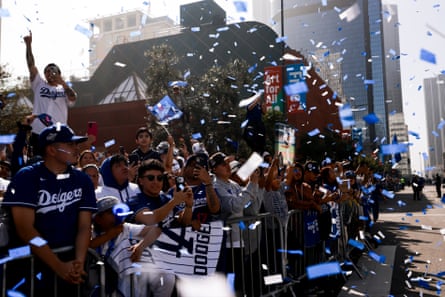
When the Trump administration began conducting aggressive immigration raids in Los Angeles in early June and sent national guard troops and marines into the city to respond to the ensuing protests, two of the city’s soccer teams quickly put out statements of solidarity with immigrant families – but not the Dodgers.
The team president, Stan Kasten, has said the Dodgers want to steer clear of politics – a view colored, perhaps, by the fact that a sizable minority of the fans, including Latinos, are Trump supporters. (Under considerable public pressure, the team later pledged $1m in support for families directly affected by the raids but made no public criticism of Trump’s administration.)
Three months earlier, the team did not hesitate in accepting Trump’s invitation to celebrate their 2024 World Series victory at the White House – a move that the Los Angeles Times sports columnist Dylan Hernandez described as “pathetic … spineless … and hypocritical”, given the Dodgers’ pride in having been the first major league team to break the color barrier in the 1940s and the frequent invocations of that legacy and the values it embodies by executives and present and former players. Several team members including the manager, Dave Roberts, had expressed unwillingness to go to the White House during Trump’s first term but either changed their minds or succumbed to pressure from team management.
A further complication for fans is that the Dodgers are owned by a corporate behemoth, Guggenheim Partners, whose equity holdings, according to media reports and its own published balance sheets, include a stake in the GEO Group, a private prison corporation that operates ICE detention centers. Guggenheim’s leadership has said many times that it wants to stay out of politics, but its critics say the silence – and the GEO investment – are their own form of acquiescence to Trump’s agenda.

All of that adds up to considerable mixed feelings among Latino fans in particular – feelings that surfaced even in the euphoria of this year’s hard-won World Series victory and the ensuing explosion of Dodgers pride across Los Angeles.
“Is it okay to root for the Dodgers?” local columnist Erick Galindo agonized at the start of the playoffs in an elegant essay ruminating on “Dodger blue in our veins, but doubt in our hearts”. Galindo couldn’t ultimately bring himself to watch the World Series, but he still cared deeply, to the point that he decided his one-man boycott must have brought the team the luck it needed to win.
Many fans who share Galindo’s misgivings appear to have decided that they can continue to support the team and its roster of international players, including the Japanese megastar Shohei Ohtani, while pouring scorn on the team’s corporate overlords. Nowhere was this more evident than at the victory celebration at Dodger Stadium on Monday, when the capacity crowd roared in approval of Roberts and his players but booed Kasten and Mark Walter, the chief executive of Guggenheim Partners.
“These men in suits don’t get to take our boys in blue from us,” Molina said. “We’ve been with the Dodgers longer than they have.”
The problem, though, runs deeper than just the team’s current owners. The deal that brought the Brooklyn Dodgers to Los Angeles in the late 1950s involved the city razing three working-class Latino neighborhoods on a hill above downtown and then selling the land to the team for a fraction of its market value. A song on Ry Cooder’s 2005 album Chavez Ravine, which chronicles the story, has an impoverished parking attendant at the stadium revealing that the home he lost to eviction is now third base.
Gustavo Arellano, perhaps southern California’s most widely followed Mexican American columnist and broadcaster, sees a darker side to the long, dysfunctional relationship between the team and its fanbase. He calls the Dodgers the Flamin’ Hot Cheetos of baseball, “a corporate entity with an undue, even unhealthy following by too many Latinos” that has been shortchanging its fans for decades.
“They’ve put one arm around Latino fans while picking their pockets with the other for so long because they have been able to get away with it,” Arellano wrote over the summer, when calls to boycott the team over its lack of response to the ICE raids were upended by the uncomfortable fact that attendance at home games did not dip, even at the height of the protests when downtown LA was subject to a nightly curfew.
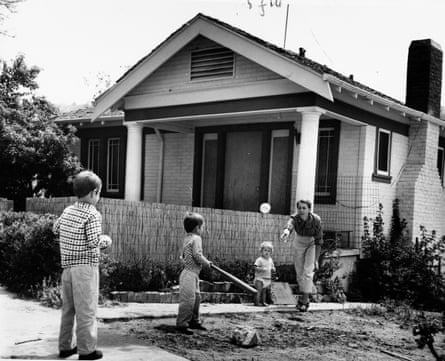
Separating the team from its corporate owners is not a simple matter, not least because it was Guggenheim that committed more than a billion dollars last year to bring Ohtani and the dominant pitcher of the World Series, Yoshinobu Yamamoto, to Los Angeles. Guggenheim has been in the forefront of internationalizing the sport more generally, finding so many business opportunities through rights and merchandising that, according to some reports, it has already recouped the eye-popping $700m investment it made in Ohtani alone.
Indeed, there was talk across baseball, even before Los Angeles snagged its second World Series in a row, that the Dodgers were ruining the sport with their financial muscle, snapping up so many star players that it was unfair to everyone else. Perhaps the greatest gift of the brilliant, compulsively watchable series with the Blue Jays, though, was how vulnerable the Dodgers looked and how hard they had to scratch and claw to save themselves through both concluding, must-win games.
Karen Bass, LA’s mayor, is not alone in seeing parallels with a singularly rough year in the city’s history, starting with January’s devastating wildfires that destroyed entire neighborhoods and displaced tens of thousands of people. “The city has been on pins and needles,” she told the New York Times. “Given the year we’ve had, we can use this burst of adrenaline, this burst of good will.”
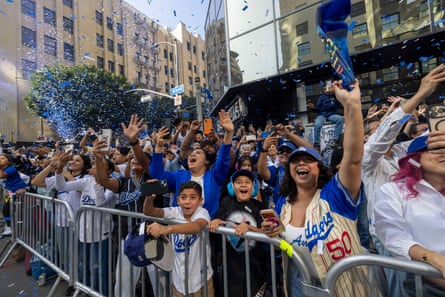
The players themselves, meanwhile, clearly see a connection between their performance on the field and the community at large, and the feeling is mutual. Hernández, the Puerto Rican left fielder who plays multiple other positions, endeared himself to many fans by making his own statement condemning the ICE raids over the summer. “I may not be [an Angeleno] born and raised,” he wrote, “but … I cannot stand to see our community being violated, profiled, abused and ripped apart.”
Roki Sasaki, the youngest of the team’s Japanese superstars, won the hearts of Latino fans from the moment he chose a catchy Spanish-language dance number, Báilalo Rocky, as his walk-up music before he pitches. (The song, he explained, was suggested to him by Rojas.)
All this is grist to the conversations that Latino fans have with each other before, during and after games. Many say they would no sooner stop loving the team known in Spanish as “los Doyers” as they would stop loving the mothers and fathers who first brought them to games and gave them their taste for baseball.
“What do you do when you feel something, and it’s complicated?” Molina asked. “For many Latinos, the Dodgers are how they connect to an American identity. It’s the most American institution most immigrants in LA feel connected to.”



